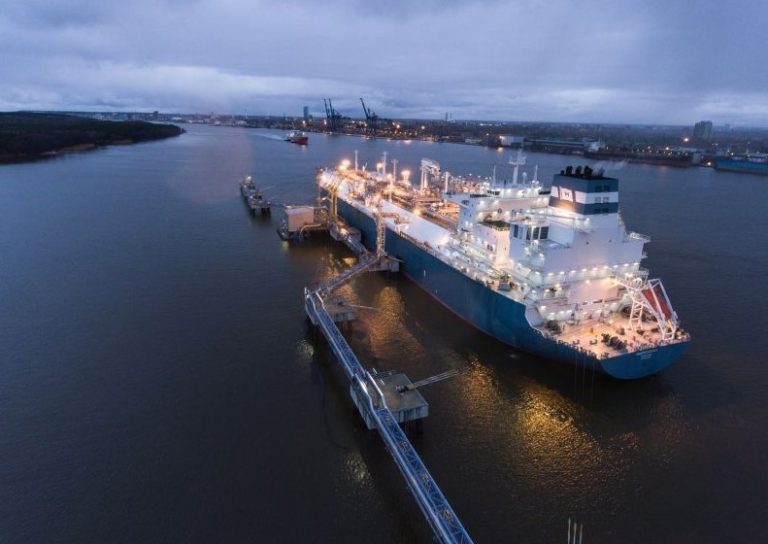Lithuania’s KN said companies have booked all of the offered regasification capacities at its 170,000-cbm FSRU Independence in Klaipeda until 2033.
In September, the state-owned operator of the country’s first LNG import facility in Klaipeda launched a capacity allocation procedure, offering capacities for the period from 2025 to 2032 (inclusive) and from 2033 onwards.
Six firms already booked the entire regasification capacities of about 34 TWh of natural gas in 2024.
KN said in a statement issued on Friday that companies expressed their intention to purchase more than twice as much terminal capacity as offered by the firm for the 2025-2032 period.
After the allocation of capacities, Lithuania’s Achema, Estonia’s Eesti Gaas (Elenger), and Norway’s Equinor ASA will each use 3 TWh of the Klaipeda terminal’s capacity each year in 2025–2032, it said.
The total annual distributed capacity of the LNG terminal amounts to about 33 TWh. Of these, companies previously booked 24 TWh, KN said.
Mindaugas Navikas, chief commercial officer of KN, said the results show the “high interest of the market participants in the natural gas market of our region, its liquidity and the proper development of the infrastructure network.”
He said that KN strives for the LNG terminal to operate at full capacity, as this reduces maintenance costs – each company using it pays a cost-based regasification service fee and fully covers the terminal’s annual infrastructure costs.
Moreover, when allocating long-term capacities, KN ensures that market participants will use not only the terminal, but also the gas transmission infrastructure in Lithuania.
Uncertainty hinders long-term commitments, plans to boost capacity on hold
During the capacity allocation procedure, KN also offered the terminal’s capacities for the period 2033-2044.
This offer received less market interest – one four TWh package was purchased out of seven offered, the LNG terminal operator said.
Navikas said the “energy crisis caused by Russia has led to a huge reorganization of the gas supply market in Europe – the construction of a number of new LNG terminals has started or the intention to build them has been announced, therefore market participants tend to wait and see which projects will be implemented and how quickly they will change the overall supply balance.”
According to KN’s CCO, another important aspect is geopolitical instability, which was “also caused by the war in Ukraine caused by Russia.”
“The recent incident with the Estonian-Finnish gas connection “Balticconnector” once again confirms that there are still many operational risks. All these circumstances shorten the planning horizon, which is why only a few organizations – at least at the moment – are willing to commit themselves 20 years ahead,” he said.
After assessing the low interest in long-term capacity after 2033 and the potential growth of LNG supply in the region and other risks, KN decided to postpone the terminal capacity development project for the future and will offer LNG terminal capacity to the market at a “later stage”, the firm said.
Last year, KN exercised its option to buy the FSRU Independence for $153.5 million, excluding VAT, from Hoegh LNG at the end of its current lease deal in 2024.
The FSRU has a regas capacity of 3.75 and KN previously announced plans to boost the capacity up to 6.25 bcm due to very high demand.
KN also recently selected a unit of Norway’s Hoegh LNG to operate and maintain the FSRU for five years.

